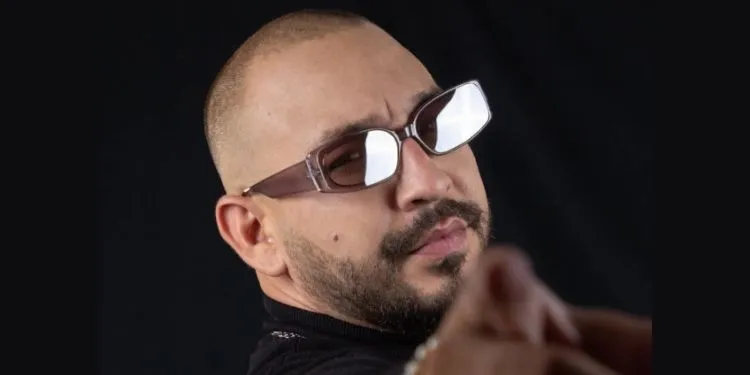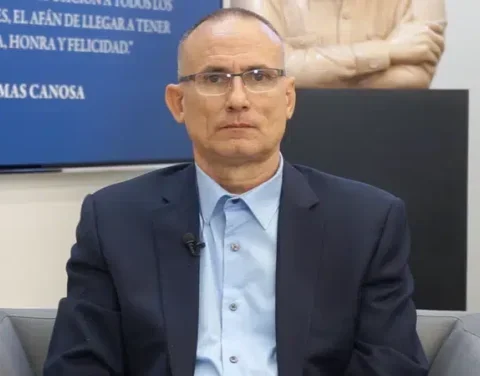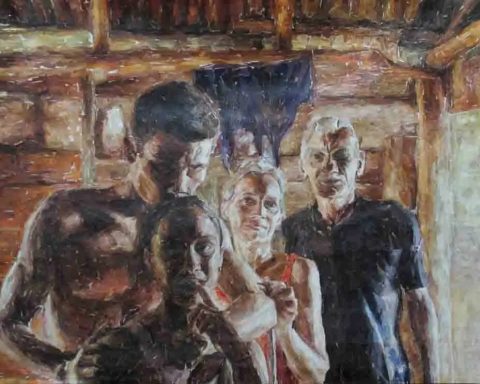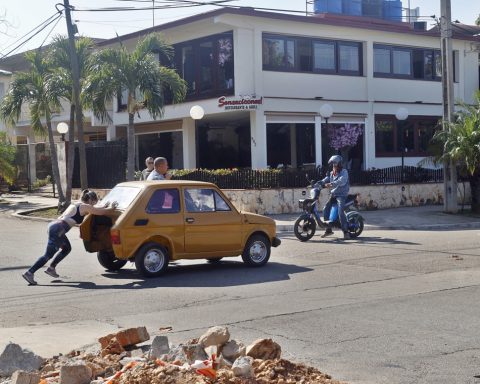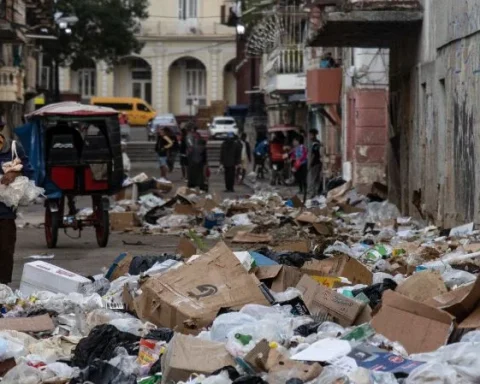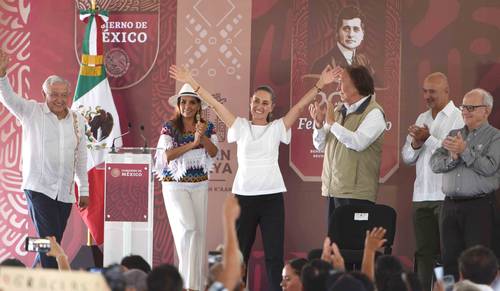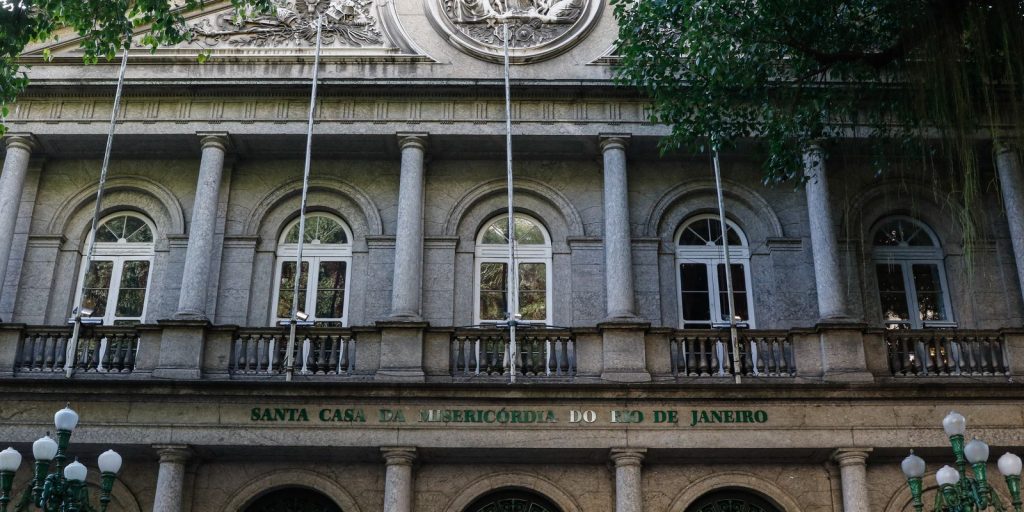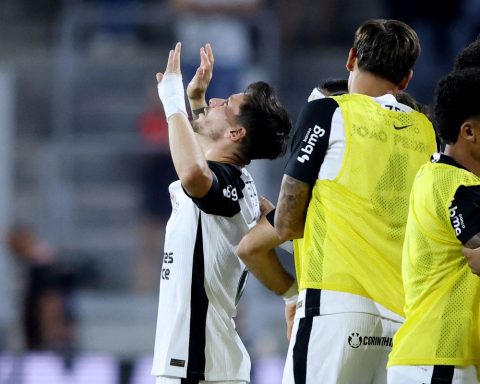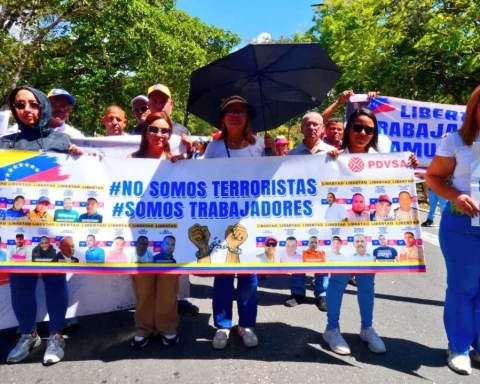SAN LUIS POTOSÍ, Mexico.- The Cuban musician Emilio Friasdirector of the popular orchestra El Niño y la Verdad, interviewed on the program Maka’s Houseexclaimed that he never voted for the “Yes” in the referendum for the new Magna Carta project, promoted by the Miguel Díaz-Canel regime in 2019.
His response came after receiving a comment on the program that pointed him out as one of the artists who launched video capsules to “encourage” Cubans to vote for the “Yeah”something flatly denied by the singer.
“I never supported the ‘Yes’ vote. I never made a ‘Yes’ vote video,” he said, after confirming that he has been accused of having done so while currently residing in Miami.
“César Pedroso, Alexander Abreu, all those who supported him are there with their capsules for the Ministry of Culture. I never supported that. I never supported any kind of communist campaign,” he said, recalling that in this type of stratagems of the regime they resorted to the artists “loyal”.
In fact, on many occasions, as he admitted, the artists were put in front of a camera to repeat what they were told. “I knew that this was not right and I said, ‘they are not going to hire me for that’. They called me from the Institute (Cuban Music Institute) and the Institute knows what I am talking about. They called me for the song Virulo from La Conga and I told them no. They told me at the EGREM, ‘but are you not going because you can’t?’ “No, I’m not going because I don’t want to.”
Emilio Frías, who enjoys great popularity inside and outside Cuba, suffered the weight of censorship on the Island after the controversy unleashed around his song “Cambio,” for which the regime began to silence him and cancel his concerts.
In Maka’s Housethe program hosted by María Carla Rivero, the singer recalled those episodes of censorship, due to which he was prevented from performing and singing for many months.
“I have not had any kind of connection with the regime,” he argued, after referring to a climactic moment in his career, when, at La Casa de la Música in Galiano, the public asked him to sing “Change” and “strange” people began to appear and turned off the lights and the audio, to prevent him from singing the song.
“I had already had more than three, four meetings at the Ministry of Culture, at the Music Institute, every week they called me to ask me the same thing, ‘why Cambio?’ And I said, ‘why not? It’s the same thing, there all the time,’ ‘why? And why a song like that?’ And I said, ‘Why not? If Cuban music is a social chronicle and we’ve always talked about what’s happening, why not narrate what’s happening?’” he recalled.
Prior to her tour in Mexico, and in the context of the song’s release, the atmosphere had become tense and she perceived unusual behavior among cultural agents.
“As soon as they started shouting ‘Change,’ I saw that people who were not in the audience started to come out, people who were dressed in civilian clothes, but who did not go to the concert. At first, they turned off the audio, they took away one of my sound engineers, a sound engineer, who was not my engineer, he was one from whom I had rented the sound system. Those people did that arbitrarily, I was in shock,” he said.
The next day he left for the tour in Mexico and received an email prohibiting him from playing in Cuba again. “After that, I started an incredible campaign, because I also returned to Cuba. 15 days after my tour, people thought I was not going to fly anymore.”
He received no answers, only evasions. No one agreed to meet with him or explained anything to him. Six months went by like this, during which he was unable to work and during which they even cancelled television programmes with his participation, which had already been recorded, and denied his presence in others, such as 23 y M.
“They used me as an exemplary case. That is, they told my colleagues, ‘Whoever jumps will go through the same thing,'” he said.
“I suffered, I suffered. That brings me back to a moment when I suffered a lot, because I felt alone,” he said, and revealed that his friends supported him but his fellow musicians did not.
“The fear is incredible. I don’t want to generalize. I had three people who wrote to me, but I was friends with all the artists. I had people who called me and said, ‘Why did you get involved in this, kid?’” he said in the interview.
In his testimony, he said that these colleagues in the artistic world offered him absolutely nothing. “I didn’t get calls from people who could have called me and said, ‘I’m going to your house to deliver a package of chicken because you haven’t worked for two months. ’ I don’t have a churros stand or a bar in Havana, I have nothing. I lived off my music.”
He said that, to his surprise, one day Amaury Pérez called him to express his disagreement with what he had done to him and to express his desire to do something for him.
“We didn’t know each other, we recorded a song one day, we saw each other, but we weren’t even close (…) He called me and said, ‘I don’t want this to happen to you, I’m going to do something for you.’ I told him, ‘I don’t want you to do anything for me. You don’t have anything to do for me, my friend.’ And I spent two hours talking to him, without having a close bond,” he said.
He does not blame anyone, he said, and now, living in Miami for two years, he has left behind the resentment for what happened to him in Cuba although, as he reaffirmed, he will never sing on the Island again.
